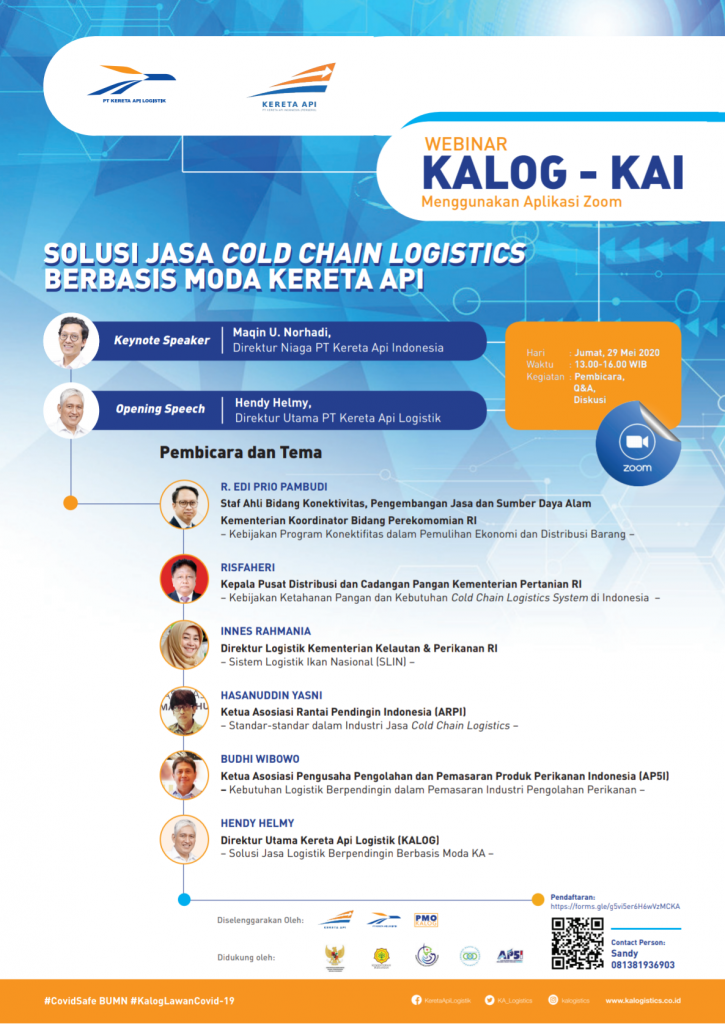In the current pandemic situation, the logistics industry and the mode of transportation (cold chain industry) nationwide continue to develop business strategies going forward. The strategy is based on the increasing demand for cold storage of food products as a buffer stock. Although during the pandemic, there were a number of obstacles faced, such as the frequency of product entry and exit, product purchase payments had a longer grace period, as well as business cash flow that was more organized, the national cold chain industry remained optimistic about moving forward with a better order.
The focus of this discussion is reflected in the ARPI, AP5i, PT. KALOG (the railway logistics, subsidiary of PT. KAI), and related government agencies, state-owned enterprises, service user industries, related associations, port managers and shipping companies. The webinar topic: Cold Chain Logistics Service Solutions based on railroad modes.
The Coordinating Ministry of Economy explained the strategy of developing logistics transportation. The Ministry of Marine Affairs and Fisheries explained the importance of the cooling system in implementing food safety of fisheries product which also requires this mode of transportation, especially on Java Island. ARPI explained the draft of national cool delivery standard that PT. KALOG needs to have. AP5i also added about the challenges of financing fish shipping so that costs are lower than other modes of transportation.
Meanwhile, Pt. KALOG itself explained in detail the form of logistical cold chain business that will be developed with a chain system that crosses from the Cilegon area to the Banyuwangi area (west to east of Java) with loading-unloading points at several stations that are traversed. The company’s management is currently looking directly at these station points to support the database and market strategies of each area.

